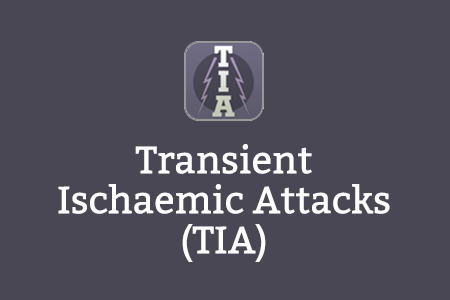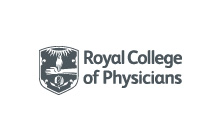About the Transient Ischaemic Attacks programme
This elearning programme aims to enhance knowledge, understanding and skills in the diagnosis and management of transient ischaemic attacks (TIAs) and TIA mimics. The programme is composed of patient scenarios as well as core knowledge elearning on topics such as migraine. The learning materials are aimed at junior doctors or specialist nurses with a background in Stroke, Neurology, Emergency Medicine, Acute Medicine and/or Primary Care.
The programme can be approached in different ways – a patient scenario session can be undertaken followed by one of the core knowledge sessions or the learner can complete all the core knowledge sessions and then move on to the patient scenarios.
The programme emphasises that becoming a competent physician in a TIA clinic requires accurate history-taking, obtaining collaterals where appropriate, planning of investigations appropriate to the presentation, and careful choice of drug and non-drug interventions that are practical and evidence-based. As most patients are managed in a single consultation, the learner needs to develop a checklist to ensure errors are avoided of which failure to advise on driving restrictions is an example. The elearning programme is designed to be used in combination with clinical practice in the relevant area, as this is when it becomes most beneficial.
Sample session
-
Partial Seizures
This session will focus on how to accurately diagnose and differentiate partial seizures from transient ischaemic attack (TIA) and discuss appropriate investigations and management strategies.
Project team

Lindsey Dow
Clinical Lead, Consultant Stroke Physician and Geriatrician
James Choulerton
Clinical Lead, Consultant Stroke Physician and Geriatrician
Neha Baj
Project Manager, HEE elearning for healthcare
Author team
- Martin Punter
- Rose Bosnell
- Ella Chaudhuri
- Natalie Gaskell
- Lukuman Gbadamoshi
- J.M. Gelauf
- Nicola Giffin
- Paul Mudd
- Natalie Robinson
- Jon Stone
- Heather Woodcraft
How to access
In order to access the Transient Ischaemic Attacks programme, you will need an elfh account. If you do not have one, then you can register by selecting the Register button below.
To view the Transient Ischaemic Attacks programme, select the View button below. If you already have an account with elfh, you will also be able to login and enrol on the programme from the View button.
NHS healthcare staff in England
The Transient Ischaemic Attacks programme is also available to NHS healthcare staff via the Electronic Staff Record (ESR). Accessing this elearning via ESR means that your completions will transfer with you throughout your NHS career.
Further details are available here.
Not an NHS organisation?
If you are not an NHS health or care organisation and therefore do not qualify for free access elfh Hub, you may be able to access the service by creating an OpenAthens account.
To check whether or not you qualify for free access via OpenAthens, you can view the eligibility criteria and register on the ‘OpenAthens’ portal.
Registering large numbers of users
If you are a HR, IT or Practice Manager and would like to register and enrol large numbers of staff within your organisation for access onto the Transient Ischaemic Attacks programme, please contact elfh directly.
Organisations wishing to use their own LMS
For HR departments wanting to know more about gaining access to courses using an existing Learning Management System please contact elfh directly to express interest.
More information
Please select the following link for more information on how to use the elfh Hub.





